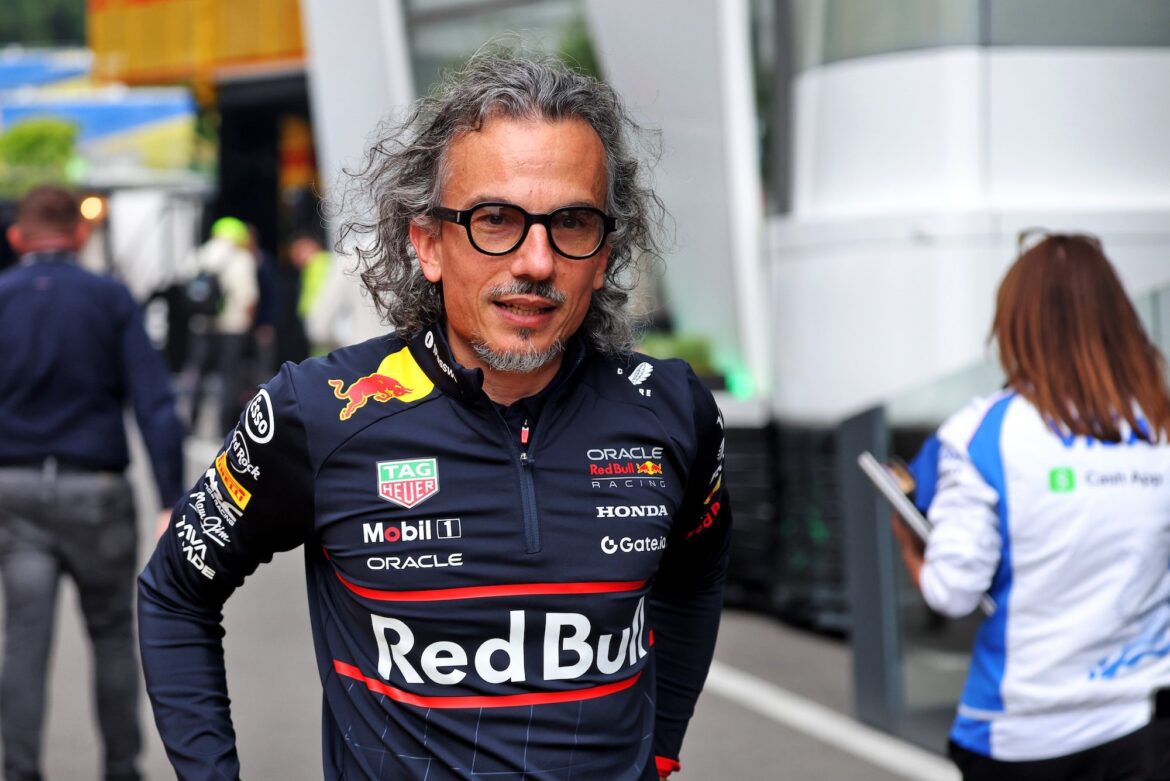The Impact of Laurent Mekies at Red Bull Racing: A New Era in Leadership
The recent appointment of Laurent Mekies as the head of Red Bull Racing has ushered in significant changes within the organization, and these transformations have not gone unnoticed. Helmut Marko, a long-serving consultant for the team, has praised Mekies’ distinctive working style and his emphasis on team success and effective leadership.
Transitioning Leadership: From Christian Horner to Laurent Mekies
Following Christian Horner’s departure, which stemmed from rising tensions with Red Bull shareholders among other issues, Mekies stepped into the role with a pragmatic approach that emphasizes technical details. This shift in leadership has been characterized by a more grounded perspective, which Marko believes has already started to yield positive results.
Mekies’ leadership style is designed to foster open communication and collaboration among team members. Marko has observed that conversations with the drivers have become more focused on technical aspects than they were previously. This level of engagement is crucial for the team’s performance, as it allows drivers to feel more connected to the engineering side of the car.
The Evolution of Yuki Tsunoda
One driver who has notably benefited from these changes is Yuki Tsunoda. Under Mekies’ leadership, there has been a marked improvement in Tsunoda’s performance, particularly during qualifying sessions. Marko acknowledges that while Tsunoda’s performances have not yet reached the heights expected in comparison to star driver Max Verstappen, there is a recognition of the potential for growth.
The Red Bull team has always prided itself on its ability to nurture talent, and Tsunoda’s development is a testament to that philosophy. The supportive environment fostered by Mekies has allowed Tsunoda to refine his skills and gain confidence behind the wheel. The discussions revolving around technical strategies have not only improved Tsunoda’s understanding of the car but also his ability to communicate effectively with engineers.
A Shift in Team Atmosphere
Marko has highlighted a noticeable change in the team’s atmosphere since Mekies took over. This transformation aligns with Red Bull’s longstanding commitment to fostering a culture of innovation and excellence. The new leadership has encouraged a more collaborative spirit among team members, leading to enhanced morale and productivity.
A positive atmosphere is vital in high-pressure environments like Formula 1, where the stakes are incredibly high. Mekies’ ability to create a space where team members feel valued and motivated is crucial for maintaining competitive performance throughout the season.
Evaluating Driver Performance: The Future of Tsunoda
Despite the improvements seen in Tsunoda’s performance, Marko has been clear that the future of the young driver is not yet set in stone. Red Bull typically conducts evaluations of their drivers after the Formula 1 summer break—an important time for the team to assess overall performance and make decisions regarding the lineup for the following year.
Marko reiterated that current evaluations are ongoing, and no final decisions have been made regarding Tsunoda’s position for 2026. This openness indicates that while Tsunoda’s performance has improved, there remains a competitive environment within the team where every driver is under scrutiny.
The Broader Implications for Red Bull Racing
The changes brought about by Mekies’ leadership extend beyond individual driver performance. Red Bull Racing is at a pivotal juncture, aiming to maintain its status as a top contender in the Formula 1 circuit. The strategic focus on technical detail and team cohesion is essential for achieving this goal.
As the team looks ahead, the emphasis on collaborative discussions and technical improvements is likely to play a critical role in their overall strategy. The ability to adapt to the evolving landscape of Formula 1, including advancements in technology and changes in regulations, will determine the team’s success in the coming seasons.
The Role of Team Dynamics in F1 Success
In the high-octane world of Formula 1, the dynamics within a team can significantly impact performance on the track. The collaboration between drivers, engineers, and management is essential for translating technical advancements into competitive speed. Mekies’ approach underscores the importance of fostering these relationships to enhance overall team effectiveness.
By creating a culture where drivers and engineers work closely together, Red Bull Racing is positioning itself to leverage its technological expertise and driver talent effectively. This synergy is crucial, especially as the competition continues to intensify with other teams making significant strides in performance.
Looking Ahead: The Future of Red Bull Racing
As Red Bull Racing navigates this new chapter under Mekies, the focus will be on sustaining momentum and building upon the foundation laid by previous leadership. The team’s commitment to innovation and excellence will be tested as they continue to push the boundaries of what is possible in Formula 1.
The decisions made in the coming months, especially concerning driver lineups and technical strategies, will be critical in shaping the future trajectory of the team. Marko’s insights into the ongoing evaluations will provide fans and stakeholders with a glimpse into the strategic planning occurring behind the scenes.
Conclusion
In summary, Laurent Mekies’ arrival at Red Bull Racing has sparked a transformation in team dynamics and performance. With a renewed focus on technical excellence and driver engagement, the team is poised for future successes. As they continue to navigate the challenges of Formula 1, the potential for growth and improvement remains strong, particularly for drivers like Yuki Tsunoda. The forthcoming evaluations and strategic decisions will be pivotal in defining the team’s path forward in the highly competitive world of motorsport.
